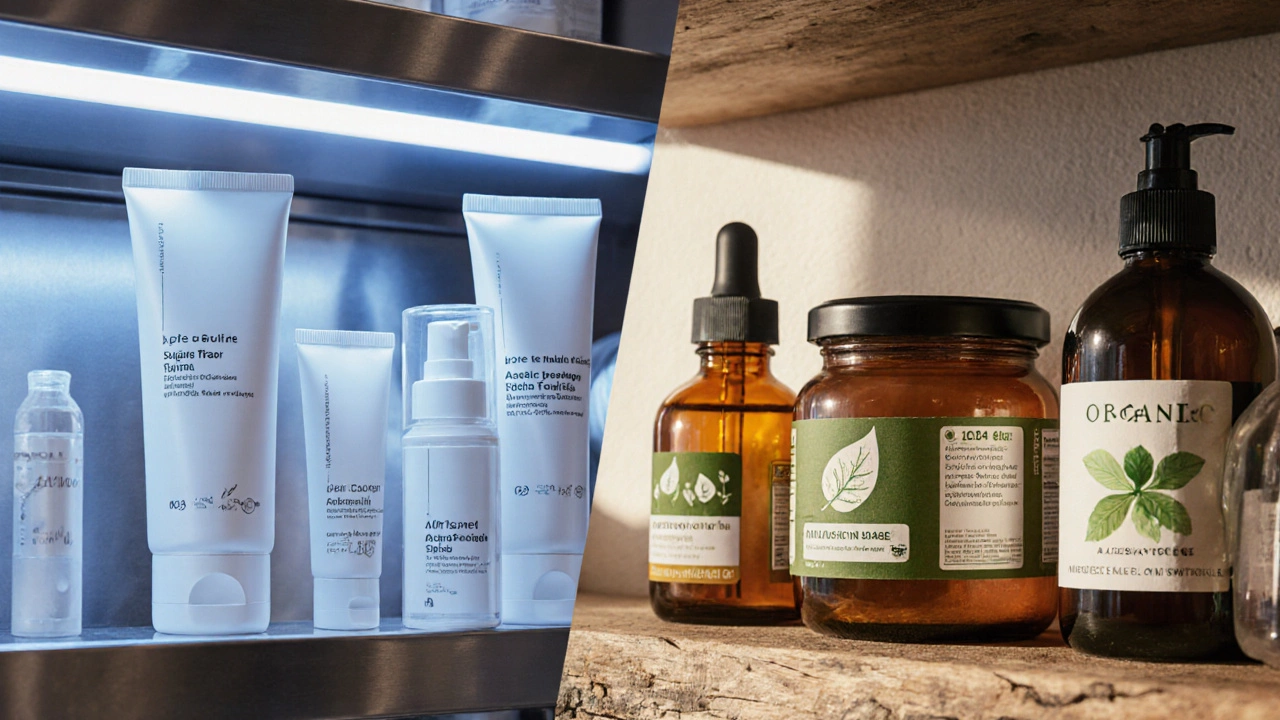Medical Grade Skincare: The Real Deal Behind Clinical‑Strength Products
When you hear the term Medical Grade Skincare, products formulated with prescription‑strength actives and often overseen by licensed professionals. Also known as clinical skincare, it sits between pharmacy‑only formulas and regular drug‑store lines, offering results that are backed by research and stricter regulation.
One key related entity is Dermatologist‑Prescribed Products, creams, serums or treatments that a skin doctor recommends based on a specific condition. These items usually contain higher concentrations of ingredients like retinoids, hydroxy acids or growth factors, which you won't find in mass‑market shelves. Another important player is Regulation Standards, the legal frameworks that dictate what concentrations and claims are allowed for medical‑grade formulas. In the UK and EU, these standards ensure safety and efficacy, while in the US the FDA treats many of these as cosmetics with limited oversight unless they are true drugs.
Understanding the ecosystem helps you separate hype from science. Medical grade skincare encompasses prescription‑strength ingredients, requires dermatologist supervision, and is shaped by strict regulation standards. Those ingredients influence skin barrier repair, collagen synthesis, and hyperpigmentation reduction more aggressively than regular over‑the‑counter actives. Because of the higher potency, you also need to follow usage guidelines closely to avoid irritation—something a skin professional will tailor to your skin type and concerns.
How to Pick the Right Clinical Products for Your Routine
First, identify your primary skin goal. If you’re tackling stubborn acne, look for dermatologist‑prescribed retinoids or benzoyl peroxide at clinical levels. For fine lines, peptide‑rich serums with higher concentrations of copper or growth factors can make a noticeable difference. Second, check the product’s active concentration—medical grade formulas typically list percentages that exceed OTC limits, like 0.5% tretinoin versus 0.025% in retail versions. Third, verify the brand’s compliance with regulation standards; reputable companies will share clinical trial data or certification from governing bodies.
Finally, remember that medical grade doesn’t mean a one‑size‑fits‑all solution. Your skin’s tolerance, existing conditions, and lifestyle all play a role. Consulting a dermatologist ensures you get a formula that works safely and effectively, turning the promise of “clinical results” into real‑world improvement.
Below you’ll find a curated selection of articles that break down everything from anti‑aging drugs to the 4‑2‑4 rule, giving you a full picture of how medical grade skincare fits into a broader beauty regimen. Dive in to see practical tips, product breakdowns, and expert advice that will help you make confident choices for healthier, more resilient skin.
Medical Grade Skincare vs Organic Skincare: Key Differences Explained
Explore the core differences between medical grade and organic skincare, from regulations and ingredients to pricing and efficacy.

